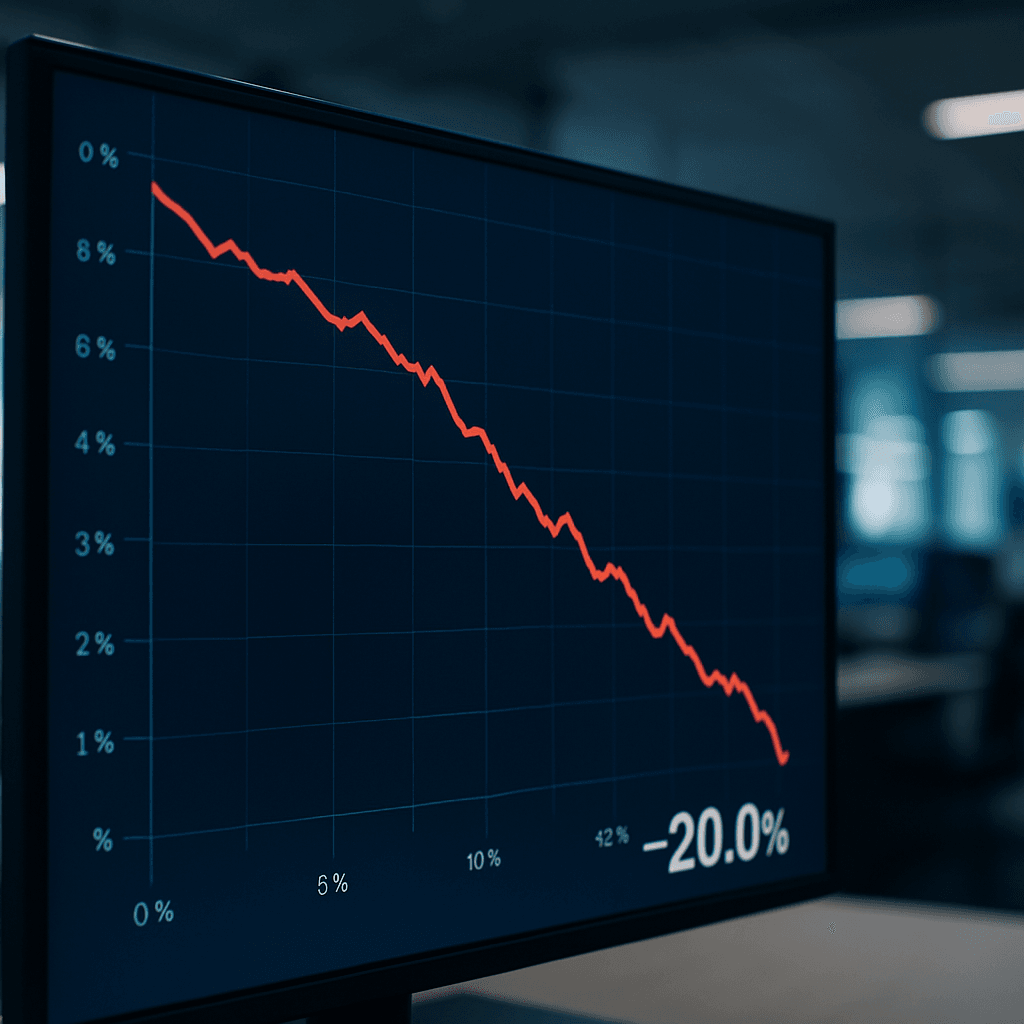Figma shares plummeted nearly 20% Thursday, crashing to their lowest point since the design software company's July IPO after reporting first-quarter earnings as a public company. The brutal selloff erased more than half the stock's value from its $115.50 debut close, shrinking Figma's market cap to $27 billion and highlighting the volatile reception of 2025's highest-profile tech offering.
Figma just delivered a harsh lesson about public market expectations. The design software darling that soared 250% on its trading debut now finds itself in freefall, with shares plunging nearly 20% Thursday to mark the lowest close since its July IPO. The brutal selloff came despite earnings that largely met Wall Street's expectations, revealing just how precarious the company's sky-high valuation has become.
The second-quarter results themselves told a story of solid but slowing growth. Revenue climbed 41% year-over-year to $249.6 million, edging past the $248.8 million analyst consensus tracked by LSEG. But investors focused on what wasn't there – the explosive momentum that justified Figma's premium valuation when it went public as one of 2025's most anticipated tech offerings.
Piper Sandler analysts captured the market's conflicted response, calling the earnings "largely a non-event" while noting the stock's "hyper-volatility" since its debut. That volatility now works against Figma, with shares trading at roughly $60 – a stunning 48% drop from the $115.50 close on day one. The company's market capitalization has contracted to about $27 billion, a sobering reminder of how quickly public market sentiment can shift.
The earnings report revealed subtle warning signs that seasoned investors likely noticed. Figma's net retention rate – a critical metric measuring how much existing customers expand their spending – dipped to 129% from 132% in the previous quarter. While still healthy, the decline suggests the rapid customer expansion that fueled Figma's private market surge may be moderating as the design software market matures.
Adobe's failed $20 billion acquisition attempt in 2022 had positioned Figma as the independent challenger reshaping creative software. That narrative helped drive enormous private market valuations, but public investors now demand consistent execution quarter after quarter. The company's preliminary results, issued over a month ago, had already telegraphed these numbers, leaving little room for positive surprises.
Figma's forward guidance offers mixed signals for recovery. The company projects third-quarter revenue between $263 million and $265 million, representing roughly 33% growth at the midpoint – well above the $256.8 million LSEG consensus. Yet even beating expectations by $8 million couldn't stem Thursday's selloff, suggesting investors want to see sustained acceleration before rewarding the stock.












